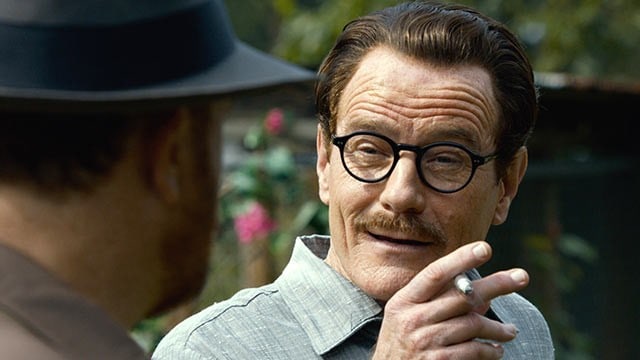
Hollywood has had its fair share of ups and downs throughout its history, but it’s hard to argue that the darkest time in the history of American entertainment was quite possibly the era of the Hollywood Blacklist. Because of the Cold War and rampant hysteria by the American people, communism and otherwise socialistic talk had no place in the American population, and the House Un-American Activities Committee was determined to see to that, subpoenaing numerous individuals in the creative committee to testify about their alleged involvement in the Communist Party of the United States.
Enter Dalton Trumbo (played by Academy Award for Best Actor nominee Bryan Cranston), the blacklisted screenwriter on whom the film Trumbo is based. After Trumbo’s support of unionized labor and his membership in the Communist Party garners the attention of gossip columnist Hedda Hopper (played by Helen Mirren) and John Wayne (played by David James Elliot), the actor that is also the president of the Motion Picture Alliance for the Preservation of American Ideals, he is forced to testify, along with nine other screenwriters who would all become known as the “Hollywood Ten,” before the committee. The belief that a liberal Supreme Court would overturn any contempt convictions drives the screenwriters, and they are all held in contempt of Congress after refusing to answer any of the committee’s questions. Things don’t go as planned, however, and the ten writers are sent to prison to serve out their convictions. During this time, the Hollywood Blacklist is greatly expanded, and the Hollywood Ten are shunned by their former friends, all attempting to keep their positions in the industry. The remainder of the film deals with Dalton Trumbo’s post-incarceration life as he tries to end the Hollywood Blacklist, eventually telling the story of Trumbo’s writing of the script for the Kirk Douglas (played here to perfection by Dean O’Gorman) film Spartacus.
The writing for Trumbo by John McNamara (based on the novel by Bruce Cook) is absolutely astounding, and he manages to capture the biting wit the titular character perfectly. This writing is aided by the phenomenal cast of the film, led by Bryan Cranston as Dalton Trumbo. Cranston gives the performance his all, and it’s clear that he left nothing on the table with this one. It’s not that often that you see a biographical performance in which it’s impossible to distinguish the separation between actor and subject, but Cranston’s effort is as admirable as one would expect. Even Cranston’s skill, though, wouldn’t have made Trumbo such a success if not for the rest of the cast, and any singular performance in Trumbo is deserving of accolade. Director Jay Roach guides the film with a skilled hand, and directorial elements of Game Change, Roach’s 2012 HBO television movie based on the 2008 presidential election, can be seen at every turn. The editing for the film is just as biting as the lead character’s dialogue, perfectly keeping spirits high throughout.
The biggest fault with Trumbo, though, is its pacing. While the story is strong, the film is longer than necessary, and you have to wonder if there weren’t some way of tightening up the story a tad without devolving into inaccuracy. Speaking of inaccuracy, I feel obligated to point out that Trumbo doesn’t have much interest in showing any guilt with any of its characters. You can’t really fault the production for that, though, as the film, while a true story, isn’t presented as a documentary. Bias will always be given for a titular character of a dramatization of reality, and that’s to be expected going in.
All-in-all, Trumbo succeeds in showing the story of one of the Hollywood Blacklist’s most notable figures, and the performances by the entire cast should be enough to convince anyone to stick with the film’s sometimes sluggish pacing. It’s clear that Bryan Cranston more than deserves his Academy Award nomination for Best Actor with this performance, and it will be very interesting to see if the Academy feels the same way come ceremony time.
 Follow Us
Follow Us
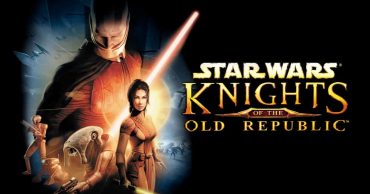
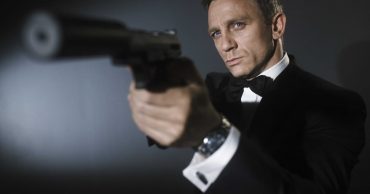
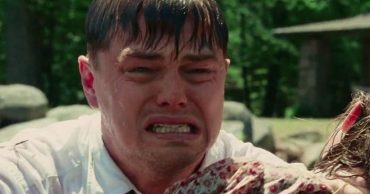
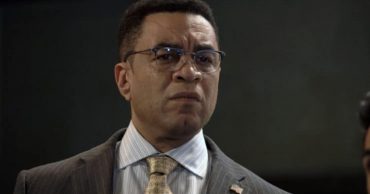
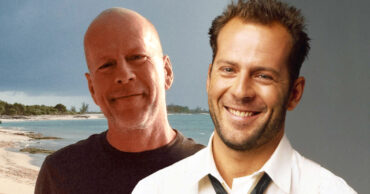
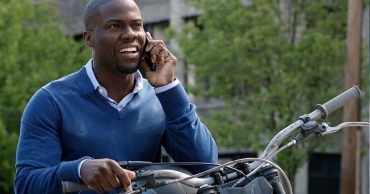
Trumbo
the film, I do not judge the fine actors nor their performance in this
make-believe film, but I take exception that there is value or a substantive
message learned from untold truth, innuendo and the manipulation of facts by
the writer, producers and the director of this film.
Aside
from the political debate, the movie Trumbo misrepresents the avarice conniving
men that Trumbo and the King Bros were. Trumbo and the King Bros were all about
the money and getting attention to that end.
Trumbo
was not a hero, he was a grandstander who mislead and toyed with the media about
many things and the most important among them, to me, was his plagiarism of my father’s
work.
Trumbo
lied about being the original author of the screenplay that the 1956 film, “The
Brave One” was based.
My
father, Juan Duval, was the author of the original screenplay which the film “The
Brave One” was based and awarded the Oscar for “Best Original Story”. My father
died before film production and the King Bros and Trumbo unashamedly took
advantage of it.
Trumbo
was a prodigious writer and during the Blacklist period he wrote and rewrote
scripts for less money for low-life producers like the King Bros and anyone
else who paid him under the table. Frank King’s nephew by marriage, Robert
Rich, was the fourth person listed as the author of “the Brave One” (after the
King Bros removed the title page of the original script) and was an
afterthought and not initially intended to be a front for Trumbo. Per the FBI
report, Rich was an office errand boy and bag man who picked up scripts and
delivered cash to Trumbo.
Roman
Holiday may be Trumbo’s original story for all I know (and I love the film),
but Trumbo was not in Italy during the shooting where much of the script was
re-written by Director William Wyler and screenwriter Ian McLellan Hunter. They
wrote script on set day to day and the nights before shooting the film, as was
Wyler’s method of film making. After Hunter’s death, his son would not return
the Oscar (and rightly so) when asked by the Academy so the Academy could then issue
the Oscar to Trumbo decades later. In my opinion, the success of the film was
due to Gregory Peck and Audrey Hepburn’s splendid performance of romance
against the background of post WWII Italy.
Proof
that Trumbo plagiarized my father’s original screenplay is revealed in Trumbo’s
book of letters, “Additional Dialogue”, page 270/271 wherein he explains to the
King Bros that he, “ruthlessly cut all extraneous material and scenes, and kept
rigidly the simple story of the boy and the bull”. Trumbo cut 50 pages from the
original screenplay.
No matter,
it was my father’s original story and not Trumbo’s, which was the category the
Oscar was awarded. The Academy should issue a posthumous Oscar to my father, as
they did for Trumbo for Roman Holiday.
If you
read the screenplay marked #1 and the redacted letters in Trumbo’s book,
“Additional Dialogue, Letters of Dalton Trumbo, 1942-1962” and compare them to
the rewritten scripts and un-redacted letters archived at the University of
Wisconsin Library, it’s obvious that Trumbo didn’t write the original
screenplay, otherwise, why would he criticize and complain to the King Bros in
so many letters about the original screenplay.
“The
Brave One” script marked “#1” with 170 pages is archived in the University of
Wisconsin Library where Trumbo donated all his work. The “#1” script’s Title
page was removed and no author was mentioned.
The
“first version” (133 pages) and “second version” (119 pages) of the scripts
listed “Screenplay by: Arthur J. Henley”.
The last
two scripts listed “Screenplay by Merrill G. White and Harry S Franklin on the
early movie posters and “Original Story by Robert L. Rich” was added to scripts
later.
When the
King Bros listed their nephew Robert Rich as author they had no idea that “The
Brave One” would be nominated for the Oscar for Best Original Story. At first,
Frank King said that there was no such person as Robert Rich and later he said
that they bought a 6-page script from a Robert Rich who was away in Germany or
Spain.
Robert
Rich (the nephew) did not attend the Oscar awards because he turned informant
for the FBI who were watching Trumbo and Rich didn’t want to be publicly
humiliated when the truth came out. And Trumbo used the excuse for not being
able to produce the original screenplay for The Brave One on his residence
being burgled while intimating that it was the FBI who tossed his residence (FBI
File Number: 100-1338754; Serial: 1118; Part: 13 of 15). The FBI did in fact
toss his residence but had no interest in scripts.
White and
Franklin were editors and acting as fronts for Trumbo before and after “The
Brave One” movie. The King Bros did not initially intend that their nephew Robert
Rich be a front for Trumbo as White and Franklin were first listed as the
screenwriters on the movie posters of The Brave One. It was only after the
media played up the no-show at the Oscars that the King Bros and Trumbo saw an
opportunity to play the media and sell tickets (per Trumbo’s letters to the
King Bros).
Juan
Duval, poet, dancer, choreographer, composer and director of stage and film was
born in Barcelona, Spain in 1897. He matriculated from the Monastery at Monserrat
and moved to Paris in 1913 where he studied with his uncle M Duval. Juan Duval was
renowned as a Classical Spanish and Apache dancer and performed in France,
Belgium, Germany, Italy and Spain. Juan was fluent in Spanish, French, Italian,
Portuguese and English.
In 1915, Juan Duval was conscripted into the French
Army and fought in Tunis and Verdun, where he suffered head wounds and was
partially gassed. He came to the US in 1918 and joined the US Army and was then
stationed with the 50th Infantry in occupied Germany for two years
before immigrating to the US where he directed live theatre and taught dancing
and acting at his Studio of Spanish Dancing on Hollywood Blvd across from the
Warner Bros Theatre. Juan produced Cave of Sorrow (Play); Lila (Musical
Comedy); Spanish Love (Drama); Café Madrid; Spanish Revue; Night In Paris
(Drama) and choreographed “One Mad Kiss” (musical) and at least one sword
fighting scene with Rudolf Valentino. He directed movies in Mexico and Cuba
including the 1935 highest grossing Spanish speaking film, “El Diablo Del Mar”
starring Movita (Marlon Brando’s second wife).
Mizi
Trumbo refused to talk to me about The Brave One original screenplay.
Before
former Director of the Academy of Arts and Sciences Bruce Davis retired, he
told me that because of the documentation that I provided him, he was inclined
to believe that my father wrote the original screenplay which the movie, “The
Brave One” was based.
The
Academy gave Trumbo an Oscar for “The Brave One” 20 years after the Oscars and posthumously
gave him another Oscar for the Roman Holiday in 2011.
The
Academy of Arts and Sciences should recognize my father’s original story and posthumously
awarded him the Oscar for “Best Original Story” for “The Brave One”.